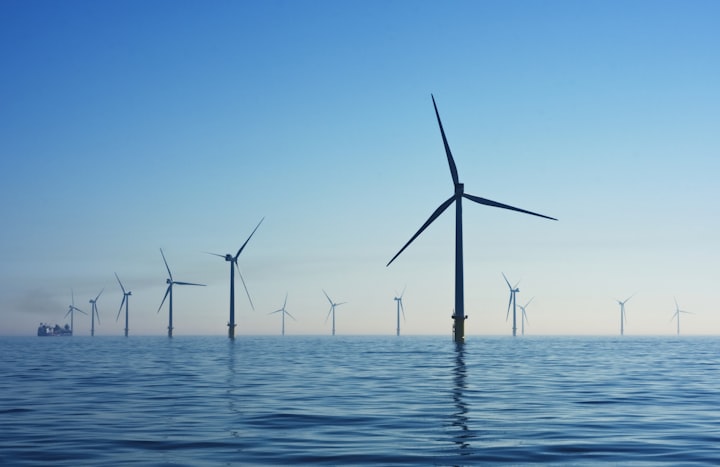The Future of Renewable Energy
Transforming Our Ecosystem

The Future of Renewable Energy: Transforming Our Ecosystem
Introduction
In recent years, the urgency to address the climate crisis has become more prominent than ever before. As fossil fuels continue to deplete and emit harmful greenhouse gases, renewable energy sources have emerged as the key to a sustainable future. With technological advancements and growing environmental awareness, renewable energy holds immense potential to revolutionize our ecosystem. This article explores the future of renewable energy and its transformative impact on our environment, highlighting the importance of embracing clean, sustainable alternatives.
Harnessing the Power of the Sun
Solar energy is undoubtedly at the forefront of the renewable energy revolution. The adoption of solar power has skyrocketed globally, and it shows no signs of slowing down. Advancements in photovoltaic technology have made solar panels more efficient, affordable, and accessible than ever before. In the future, solar energy will play a pivotal role in reducing our dependence on fossil fuels, mitigating climate change, and fostering energy independence. Furthermore, the integration of solar power with energy storage systems offers the potential to provide a reliable and consistent energy supply, even during periods of low sunlight.
Unleashing the Potential of Wind
The wind energy sector has also experienced remarkable growth, with massive wind farms now dotting landscapes across the globe. As wind turbine technology improves, harnessing the power of wind becomes more efficient and cost-effective. Offshore wind farms, in particular, hold tremendous potential, as they can capture strong and consistent winds, mitigating the visual impact on land. The future of wind energy lies in larger, more efficient turbines that can generate higher outputs. By integrating wind power into our energy grid, we can significantly reduce carbon emissions and create a more sustainable future.
Tapping into the Force of Water
Hydropower has long been recognized as a reliable and efficient renewable energy source. By harnessing the force of flowing or falling water, hydropower plants generate electricity without emitting greenhouse gases. The future of hydropower lies in developing more innovative and environmentally friendly solutions. Technologies such as run-of-the-river systems and tidal and wave energy have great potential to expand hydropower's reach while minimizing environmental impact. Furthermore, the integration of hydropower with pumped-storage systems can provide a means of energy storage, ensuring a stable and consistent supply of electricity.
Exploring Other Renewable Energy Sources
While solar, wind, and hydropower dominate the renewable energy landscape, there are several other sources with significant potential. Biomass, derived from organic matter such as plants and agricultural waste, can be converted into biofuels and biogas, reducing dependence on fossil fuels in the transportation and industrial sectors. Geothermal energy, harnessed from the Earth's heat, offers a reliable and constant source of electricity and heating. Additionally, emerging technologies like ocean energy, which includes wave, tidal, and thermal energy, hold great promise for the future, although further research and development are needed to overcome technical and economic challenges.
Conclusion
The future of renewable energy is bright and holds tremendous potential for transforming our ecosystem. Solar, wind, hydropower, and other renewable sources provide a sustainable alternative to fossil fuels, helping to mitigate climate change and reduce environmental degradation. Technological advancements continue to drive down costs and improve efficiency, making renewable energy increasingly accessible to individuals, communities, and businesses. Embracing clean energy not only offers environmental benefits but also enhances energy security, creates job opportunities, and promotes economic growth.
However, the transition to a renewable energy future requires a concerted effort from governments, businesses, and individuals alike. Policymakers must enact supportive legislation, incentivize renewable energy investments, and establish favorable regulatory frameworks. Businesses should prioritize sustainable practices and invest in renewable energy infrastructure. Individuals can contribute by adopting energy-efficient practices, installing solar panels on rooftops, and advocating for renewable energy initiatives.
By embracing the potential of renewable energy, we can pave the way for a more sustainable future. It is our collective responsibility to drive this change, ensuring a healthier and more resilient ecosystem for generations to come. Let us seize this opportunity to transition to a world powered by clean and renewable energy, where environmental harmony and human well-being thrive hand in hand.





Comments
There are no comments for this story
Be the first to respond and start the conversation.